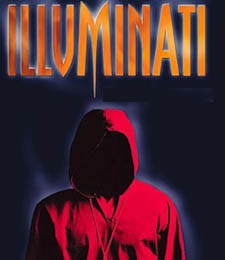|
Illuminati
Wikipedia 2007.10.31. 14:49
 Truth or phantasy..? Truth or phantasy..?
| IlluminatusA movement of freethinkers that were the most radical offshoot of The Enlightenment — whose adherents were given the name Illuminati (but who called themselves "Perfectibilists") — was founded on May 1, 1776 by Jesuit-taught Adam Weishaupt (d. 1830), who was the first lay professor of canon law. The group has also been called the Illuminati Order, the Order of the Illuminati, the Ancient Illuminated Seers of Bavaria, and the Bavarian Illuminati. In 1777, Karl Theodor, Elector of Palatinate, succeeded as ruler of Bavaria. He was a proponent of Enlightened Despotism and in 1784, his government banned all secret societies, including the Illuminati and the Freemasons. The structure of the Illuminati soon collapsed, but while it was in existence many influential intellectuals and progressive politicians counted themselves as members. Its members were supposedly drawn primarily from Masons and former Masons, and although some Masons were known to be members there is no evidence that it was supported by Freemasons. The members pledged obedience to their superiors, and were divided into three main classes: the first, known as the Nursery, encompassed the ascending degrees or offices of Preparation, Novice, Minerval and Illuminatus Minor; the second, known as the Masonry, consisting of the ascending degrees of Illuminatus Major and Illuminatus dirigens, the latter also sometimes called Scotch Knight; the third, designated the Mysteries, was subdivided into the degrees of the Lesser Mysteries (Presbyter and Regent) and those of the Greater Mysteries (Magus and Rex). Relations with Masonic lodges were established at Munich and Freising in 1780. The order had its branches in most countries of the European continent; its members were reportedly around 3,000-4,000 members in the span of 10 years. The scheme had its attraction for literary men, such as Goethe and Herder, and even for the reigning dukes of Gotha and Weimar. Internal rupture preceded its downfall, which was effected by an edict of the Bavarian government in 1785. Origins Since 'Illuminati' translates to 'enlightened ones' in Latin, it is natural that several unrelated historical groups have identified themselves as Illuminati. Often, this was due to claims of possessing gnostic texts or other arcane information not generally available. The designation illuminati was in use from the 14th century by the Brethren of the Free Spirit. In the 15th century the name was adopted by other enthusiasts who claimed that the illuminating light came, not by communication from an authoritative or secret source, but from within, as the result of exalted consciousness, or "enlightenment". The Illuminati is the name of many groups, modern and historical, real and fictitious, verified and alleged. Most commonly, however, The Illuminati refers specifically to the Bavarian Illuminati, perhaps the least secret of all secret societies in the world, described below. Most use refers to an alleged shadowy conspiratorial organization which controls world affairs behind the scenes, usually a modern incarnation or continuation of the Bavarian Illuminati. Illuminati is sometimes used synonymously with New World Order. |


|

